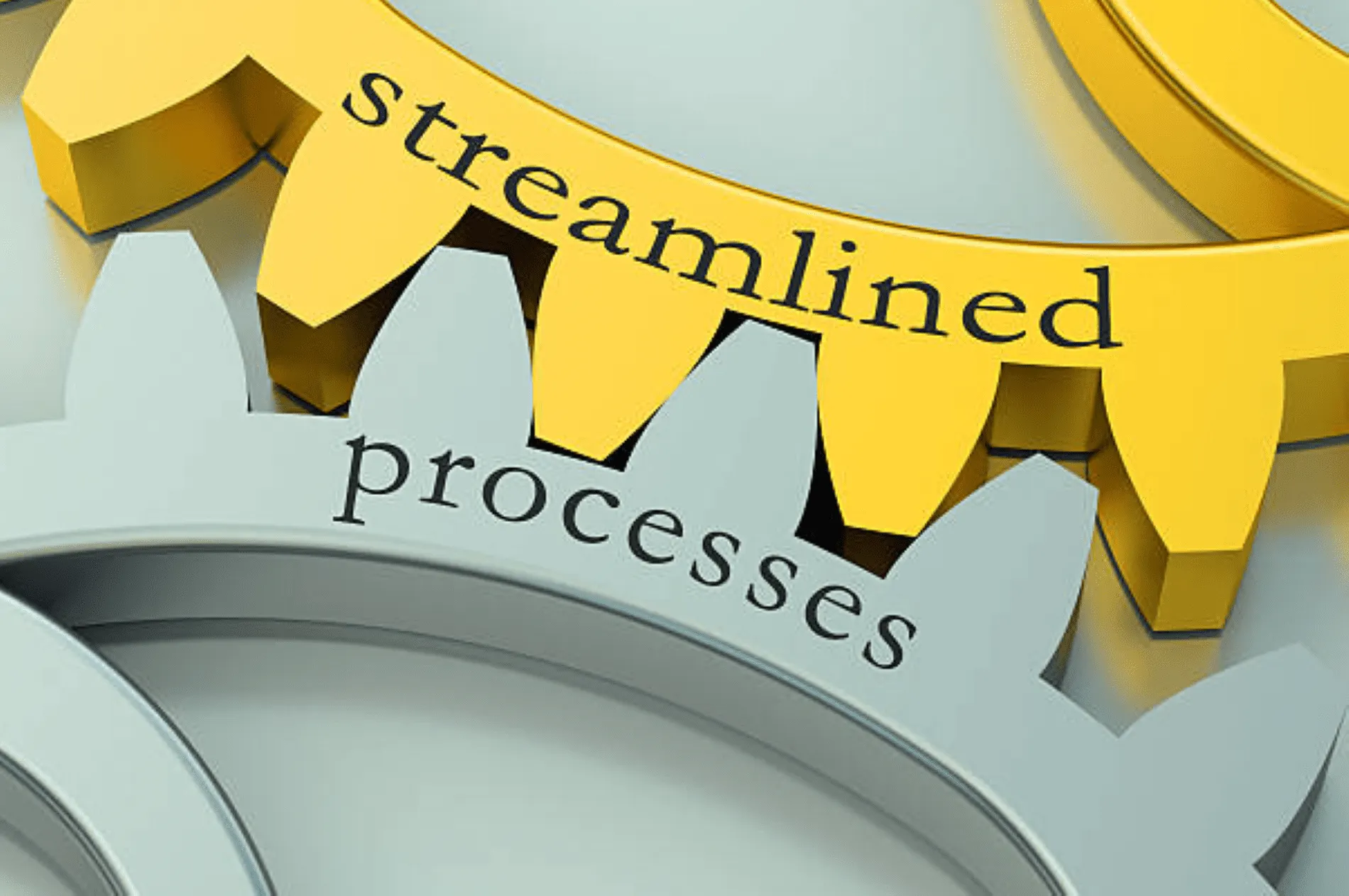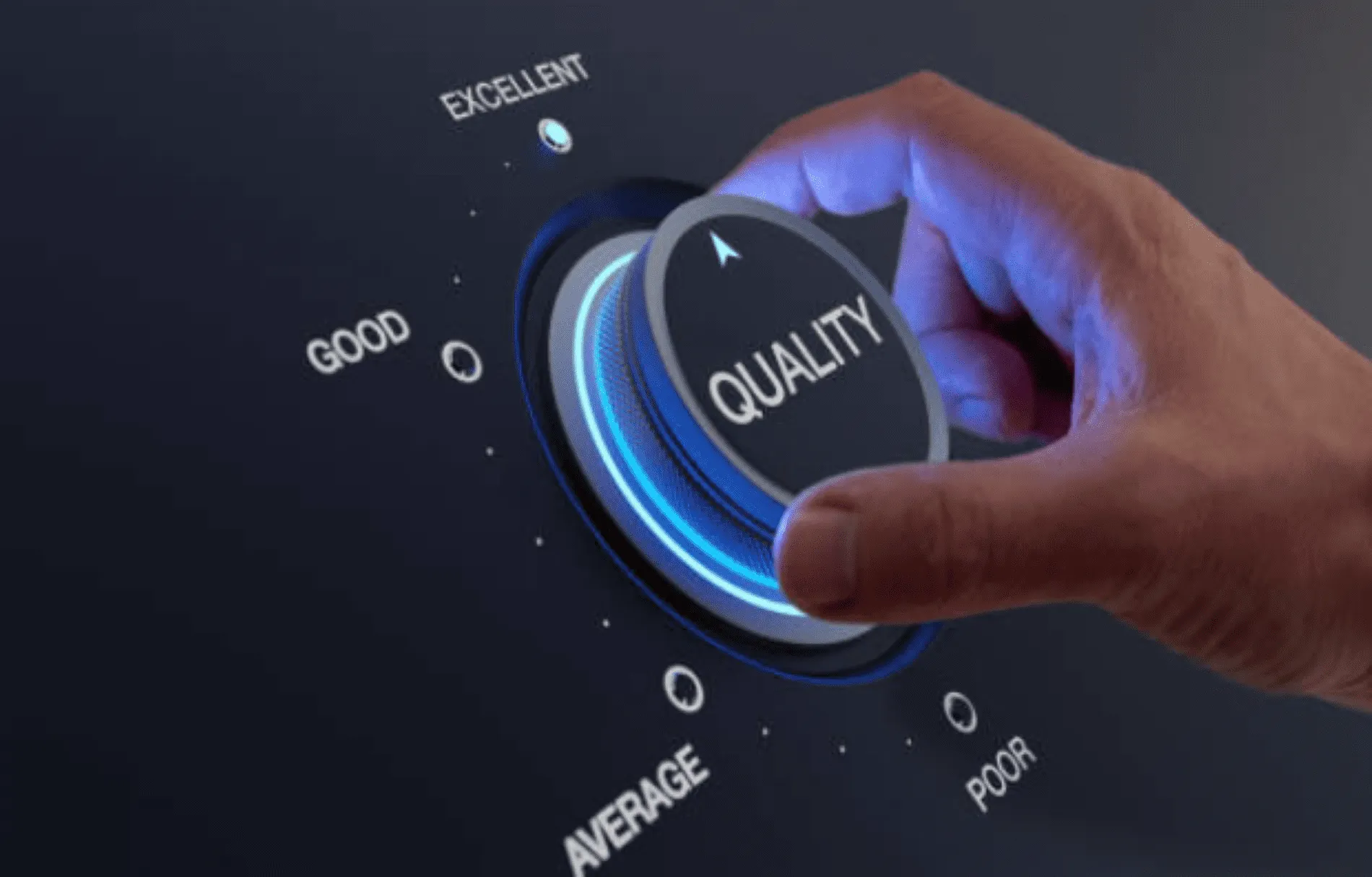How Behavioral Assessments Improve Recruitment

Author: Tyesia Hunter
Setting the Stage: The Challenge of Modern Recruitment
Recruiting in the modern era presents a unique array of challenges. The search for the perfect employee demands a fine balance of technical prowess, attuned soft skills, and a fitting corporate culture. Recruiters are not just seeking mere human machines capable of executing tasks, but individuals whose values align with their organization's ethos, thus contributing positively to its overall growth.
Naturally, this intricate process cannot be facilitated solely by traditional recruitment methods. Enter behavioral assessment tools—an increasingly popular approach that holds great promise.
These tools have revolutionized how employers perceive prospective hires' abilities and behaviors beyond what meets the eye in an application or during an interview. At the core of behavioral assessment is psychometric testing—providing recruiters with an in-depth understanding of candidates' personality traits and behavioral tendencies.
This information is instrumental in predicting how individuals may perform once integrated into a team or faced with specific work-related situations. But it's not only about performance prediction; these assessments also prove valuable for leadership potential identification.
By evaluating a job candidate's responses to various behavioral interview questions or scenarios through a specialized questionnaire, recruiters can gain insights into their potential as future leaders within the organization. Employers are increasingly leaning towards these innovative techniques as they seek to harness the power of data-driven decision-making.
The focus is shifting from solely relying on intuition-based hiring to more objective measures like employee behavior assessment—the results often speak for themselves. The application of behavioral assessments isn't limited to recruitment alone but spans across various aspects including learning and development, leadership grooming, and team-building exercises.
They form an integral part of organizational behavior assessment efforts aimed at improving both individual and collective productivity levels while fostering a supportive work environment. In essence, these tools take the guesswork out of hiring by enabling employers to make informed decisions based on comprehensive data analyses rather than gut feelings alone—a transformation that has undoubtedly set new standards for efficient recruitment practices globally.
Understanding Behavioral Assessments
In the realm of hiring, behavioral assessments serve as an invaluable tool, providing crucial insights that go beyond a resume and interview. A behavioral assessment in education teaches us the value of understanding not just what people know, but how they think and act - and this principle transfers to recruitment as well. These assessments are grounded in the field of psychometrics, which is a branch of psychology aiming to measure skills, knowledge, abilities, attitudes, personality traits, and educational achievement.
Behavioral assessment tools used by recruiters might include structured interviews or questionnaires designed specifically for this purpose. For instance, a behavioral assessment questionnaire may ask a potential employee about past experiences that required problem-solving under pressure or teamwork.
Their answers can provide valuable information about their ability to handle similar situations in the future. Emphasizing behavior analyses isn't something new; it's just underutilized in many hiring processes.
While we're familiar with handy interview tools like behavioral interview questions – those inquiries that ask candidates to recall specific incidents where they demonstrated particular skills or abilities – using full-fledged behavioral assessments takes this concept to the “Next Level”! Through such assessments’ findings—whether through psychometric testing or other means—employers can sketch a robust behavioral profile for each job candidate.
This form of evaluation doesn't only apply during the onboarding process; it extends into performance analysis once an individual is part of an organization too! Employee performance assessments often encompass elements of behavior analysis alongside more quantitative measures like sales figures or project completion times.
Of course, everything is contextual when it comes to the work environment and varies from organization to organization. For instance, leadership assessment may include different parameters when compared with other job roles as leaders hold unique responsibilities within any company structure.
Similarly nuanced is personality assessment: while certain personalities might thrive in competitive high-pressure environments (think anesthesiologists), others might perform best within collaborative team-oriented settings (such as marketing teams). All these various forms of evaluation fall under the umbrella of organizational behavior assessment.
By observing, understanding, and assessing behavior patterns, businesses can create a more harmonious, productive workplace where employees are more likely to succeed and stay long-term - a win for both parties. With the proper application of behavioral assessments in recruitment settings, companies can make informed decisions that benefit their long-term objectives while contributing to individual employee's growth and satisfaction.
The Benefits of Behavioral Assessments
Diving right into the crux of the matter, there's no denying that behavioral assessment tools have a profound influence on the recruitment process. These instruments, designed to provide insights into a candidate's behavior, motivations, and personality traits, are instrumental in predicting how well individuals might perform in specific job roles. The idea behind these tools is simple - they aim at creating an ideal match between a candidate's inherent behavioral profile and the requirements of a particular job description.
To truly appreciate the importance of behavioral assessments, let us first understand what they entail. For instance, take the case of psychometric testing – this powerful tool enables recruiters to gauge cognitive abilities and personality/behavioral style in an objective manner.
This provides recruiters with valuable data about aspects like emotional intelligence, and adaptability to changing environments or situations among many other crucial considerations that significantly contribute towards job performance. Another very popular method is behavioral interview questions.
These are carefully structured queries that probe into past behavior patterns since it's generally accepted that past behavior is one of the best predictors of future performance. It’s like looking into a crystal ball– only this one draws from data-backed evidence instead of mystical powers!
By asking such questions during interviews, hiring managers can get an insight into how potential employees have handled different situations at work and it also provides a glimpse into their problem-solving capabilities. Now imagine marrying these two approaches; throwing in some elements like leadership assessment or personality assessment tests for good measure.
You'd be able to form an almost holistic image of a potential recruit - right from understanding their leadership style to getting clues about their team dynamics or even predicting how they might respond under stress! Behavioral profiling not only allows employers to delve deeper beneath the surface of resumes and cover letters but also helps them chart out future success strategies for new hires by aligning their skills with organizational goals.
Furthermore, these profiles can be used as guides for training needs analysis post-hire which contributes to both employee and organizational growth. Adding to these benefits is the efficacy of behavioral assessment in education.
This is where it gets even more interesting! Educational institutions are leveraging the power of these tools to better understand their students, which, in turn, helps educators tailor their teaching styles to best suit individual learning needs.
This practice has far-reaching implications as it fosters an environment that not only encourages learning but also nurtures soft skills like empathy and effective communication. Wrapping up this section with a noteworthy mention of behavioral assessments' role in psychology.
In the realm of psychology, behavior analyses are often used to study aspects like motivation, the impact of rewards or punishment on behavior, and other fundamental elements that can be extrapolated to an organizational setup. Whether it's a job candidate assessment or an employee performance evaluation – behavioral assessments have definitely emerged as one of the most reliable techniques in modern recruitment.
They offer profound insights into human behavior - serving as invaluable aids for recruiters worldwide. No wonder then there's a surge in demand for professionals who are adept at conducting behavioral assessment questionnaires among other things!
Enhancing Predictive Accuracy
The traditional recruitment methods are often time-consuming and fraught with uncertainty. It's a tricky business, picking out the right candidate from dozens, or even hundreds of applications. You might go through several rounds of interviews, and exhaustive background checks and still end up with a bad hire.
This is where Behavioral assessments come to our rescue. Behavioral assessments, commonly known as psychometric testing in some circles, aim to enhance predictive accuracy in the hiring process.
They assess a candidate's personality traits and behaviors that can predict their potential performance on the job. These tests can be seen as an analytical tool that complements interviews, providing a more in-depth understanding of candidates' personalities.
One of their primary uses is to measure an individual's suitability for a role based on essential behavioral aspects: leadership style, ability to work in teams, response to stress, and conflict management among others. Used correctly it aids organizations in dramatically improving their recruitment process.
The beauty of these behavioral assessment tools lies not just in predicting job fit but also in looking at other critical areas such as leadership potential or suitability for a specific organizational culture - all those intricate human factors that can't be gauged from resumes or standard interview questions alone. Moreover, these assessments aren't limited to the corporate world; they find relevance across diverse fields.
Behavioral assessment questionnaires are designed using principles from organizational behavior analysis and psychology; these tests provide valuable data about employee thought processes which help firms make informed human resource decisions like who gets the promotion? Who needs additional training? Which department would this employee work best with? So next time you sit across from a job candidate during an interview or look at those employee performance reports wondering if there was a more efficient, accurate way to assess people's potential - remember there is; it's called behavioral assessment!
Reducing Hiring Mistakes
What a heady thrill it is, isn't it? The moment when you think you've found the perfect candidate for your team. Their resume is polished and professional, their interview was impressive, and on paper, they seem like a dream come true. But, allow me to play devil's advocate here - have you considered the potential pitfalls that may lurk beneath the surface?
And this isn't about nitpicking or conjuring up needless worries. It's about acknowledging that recruitment isn't an exact science and that sometimes hiring mistakes happen despite our best efforts. After all, we're all human! This is where behavioral assessments come in as a divine intervention of sorts.
By incorporating job candidate assessments into your hiring process, you can considerably reduce these hiring mistakes. Perhaps you wonder how exactly this works.
Well, let me elucidate by drawing parallels with behavioral assessment in education which many of us are familiar with from our school days. Just like academic tests measure our knowledge of various subjects, employee performance assessment evaluates a person’s suitability for a specific job role based on their behavior patterns.
No longer do you have to rely solely on resumes or references which often paint an incomplete (or overly rosy) picture of candidates. By throwing leadership assessments into the mix along with behavioral interview questions tailored to your industry or department needs, you get a well-rounded understanding of potential hires.
Now imagine complementing this data-driven approach with insights from behavioral profiling—similar to behavior analysis used in law enforcement and intelligence agencies but applied to recruitment instead. With such thorough analytical tools at your disposal, identifying those red flags becomes much easier than before.
But don't worry—I'm not proposing turning your HR department into an offshoot of CSI! Instead, I suggest adopting psychometric testing and personality assessments in moderation as part of a comprehensive evaluation process encompassing resumes, interviews, and reference checks among others.
Think about it—wouldn’t it be nice to know beforehand how a potential employee might react in various situations, their leadership style, or their approach to teamwork? Isn’t that invaluable information that can save you from costly hiring mistakes down the line?
Now, if you're imagining long, befuddling questionnaires and complicated scoring systems, don't fret. Thanks to technological advancements, today's behavioral assessment tools are often user-friendly and straightforward.
So why not consider implementing organizational behavior assessments or behavioral assessment questionnaires as part of your recruitment strategy? I assure you, that the benefits far outweigh any potential hurdles!
My rambling (or should I say musings), remember, reducing hiring mistakes isn’t just about preventing financial losses—it’s also about building a harmonious well-functioning team that drives your organization toward success. And with behavioral assessments at your disposal, you’re well on your way to achieving just that.
Uncovering Hidden Talents
Unearthing the potential of an individual that is often shrouded beneath layers of self-inhibition can be quite the task. However, introducing behavioral assessments in your recruitment process could allow you to reveal these hidden talents. Using this approach, you can delve deeper into a candidate's psyche, making it easier to accurately gauge their skill set and attitude towards work.
Psychometric testing is one such method used in behavioral assessments. It offers a scientific basis to understand the mental capabilities and behavioral style of job applicants.
In essence, it's akin to mining a diamond – cutting through the rough exterior to discover a highly valuable asset within. Through these tests, recruiters are often surprised by candidates showcasing abilities that weren't immediately apparent or disclosed during initial interviews.
The goal of this type of assessment is to decipher how a candidate thinks, what motivates them, and how they handle difficult situations or setbacks - all important characteristics for any potential employee. The right set of tools can make all the difference when it comes to separating average from exceptional talent during recruitment.
Behavioral assessment tools such as personality assessments and behavior analysis offer greater insight into an individual’s character strengths, work style preferences, and potential areas for development beyond what traditional interviewing methods provide. Behavioral profiling plays another key role in this puzzle by identifying particular traits that align with successful employees already flourishing within your organization.
For instance, leadership assessment tests are useful for predicting future leaders among entry-level candidates by comparing results with known leaders' profiles in your company. As you can see from these few examples at our disposal - psychometric testing, behavioral interview questions, and personality assessments among others - applying behavioral assessment principles allows you to undertake a thorough job candidate assessment process thus creating room for undiscovered aptitudes to shine through.
Streamlining the Hiring Process
Integrating behavioral assessments into the hiring process can significantly streamline operations. These tools provide a data-driven approach, enabling us to bypass the time-consuming methods of yesteryears, such as solely relying on gut feelings or inefficient interview techniques.
Behavioral assessment tools are like a compass guiding us through the vast and often confusing landscape of human behavior. They can help sort out the candidates who are likely to fit in from those who aren't.
A primary benefit is that they allow recruiters to get an objective view of candidates' abilities and potential compatibility with a company's culture early on in the process. Imagine sorting through hundreds or even thousands of resumes for just one job posting, then attempting to decipher which ones are worth pursuing further based on limited information.
With behavioral assessments, we can effectively eliminate this guesswork through comprehensive analysis that evaluates each applicant's potential fit within our organization. Leadership assessment is another crucial aspect in streamlining recruitment.
Suppose we're searching for someone to take up a managerial role – using behavioral profiling; we can identify traits linked with successful leadership such as problem-solving skills, emotional intelligence, and strategic thinking capacity among others. This ensures that we place people with high leadership potential into positions where they'll have the most significant impact.
Moreover, these insightful tools allow for an efficient way to prepare behavioral interview questions based on each candidate's profile—no more generic questions that often elicit rehearsed responses but rather pointed queries designed specifically towards understanding each candidate better. From organizational behavior assessment results or psychometric testing findings done beforehand, interviewers will be well-equipped with pertinent information about each applicant’s strengths and weaknesses and how these tie into their roles within an organizational setting.
The usage of behavioral assessments extends beyond recruitment as well; they find value in employee performance assessments too! These tools offer us rich insights into employee behavior by highlighting areas where training might be necessary or where commendations are due for excellent performance—acting like a roadmap for talent development within an organization.
By integrating behavioral assessment tools into our recruitment strategy, we not only streamline the process but also make informed decisions that significantly impact our organization's trajectory. From leadership assessments to psychometric testing, these tools offer valuable insights that enable us to better understand our candidates and employees alike – a clear win on all fronts!
Time and Cost Savings
Imagine the arduous journey of sifting through piles of resumes, conducting countless interviews, and ultimately discovering that the chosen candidate is not a good fit after all. The time involved in traditional recruitment processes can be exhaustive and inevitably costly. However, the advent of organizational behavior assessment has revolutionized this process. It offers a streamlined approach to identifying potential candidates who align with a company's culture and values, substantially cutting down both time and expenditure.
Behavioral assessment tools such as psychometric testing add dynamism to the recruitment process by providing data-driven insights into job candidates' personality traits, abilities, attitudes, and work style preferences. They save recruiters from falling into the trap of hiring based on gut feelings or first impressions alone.
These instruments are scientifically designed to identify individuals whose characteristics align with those required for success in a given role. So instead of wasting invaluable hours screening unqualified applicants or conducting unnecessary interviews, you get straight to the most promising prospects.
When you consider everything associated with traditional hiring - advertising open positions, reviewing applications, scheduling, and carrying out interviews - it's clear how costs can quickly escalate. But even more significant can be the cost of a bad hire: wasted salary payments, lost productivity, negative impact on team morale or customer relationships... the list is extensive.
With behavioral assessment questionnaires in place during recruitment processes, however, these expenditures can be cut drastically along with reducing potential risks associated with hiring an incompatible candidate. Let's also consider another cost-saving facet - employee performance assessments post-hire.
While these are crucial for providing constructive feedback and fostering employee growth they often involve significant resources both in terms of time and manpower especially when conducted manually by HR professionals or management staff members themselves. In contrast behavioral assessments administered during recruitment phases have lasting value beyond initial hiring decisions; they continue serving as benchmarks against which employee performance can be continually evaluated over time thereby reducing follow-up costs related to subsequent evaluations.
So whether it’s about saving valuable time, conserving financial resources, or simply making smarter hiring decisions, integrating behavioral assessments into the recruitment process is an investment that pays off multifold. Just as in behavioral assessment in education and psychology where this methodology helps identify unique individual attributes for more effective learning and treatment strategies, so too does it function in HR, pointing the way to improved recruitment outcomes.
Better Candidate Selection
Do you ever wonder why some employees fit perfectly well into their job roles while others struggle, despite having impressive resumes? The key might be in the behavioral assessment tools used during the recruitment process. These tools, which are often based on principles of behavioral assessment in psychology and behavior analysis, offer companies a unique perspective on how potential hires would perform and adapt within an organization.
Behavioral assessments shine a light beyond the traditional hiring parameters such as education and experience. By posing carefully designed behavioral interview questions or using a behavioral assessment questionnaire, employers can assess how a candidate might react to various scenarios that they may encounter in the workplace.
This can help identify whether candidates possess crucial soft skills such as teamwork, leadership, problem-solving capabilities, conflict resolution abilities, and adaptability. At the heart of this method is personality assessment - understanding who an individual is behind the professional facade.
With psychological underpinnings, these evaluations provide insights into traits that are harder to quantify but can significantly impact an employee's performance. For example, psychometric testing helps pinpoint characteristics like conscientiousness or openness to experiences which might determine how easily one handles change or adheres to established protocols.
Additionally, behavioral profiling has proven particularly useful for leadership assessment. Rather than simply relying on someone's track record in management positions or their charisma during interviews, these tools enable employers to evaluate if candidates display qualities associated with effective leaders - from decision-making abilities to emotional intelligence and resilience under pressure.
In essence then, by embracing employee behavior assessments--alongside traditional methods--in recruitment processes; organizations not only improve their chances of selecting candidates best suited for particular roles but also set them up for success by understanding their strengths and learning areas from day one. It's about harmonizing job candidate assessments with organizational behavior assessments for the ultimate win-win situation.
Conclusion
There's an art to utilizing behavioral assessments effectively, it is essential to understand the nuts and bolts of how this method works. Behavioral profiling, for instance, is a critical part of this practice.
This involves evaluating the behavioral tendencies of a job applicant in various scenarios—both professional and personal. It's not about scrutinizing every little action; rather, it's about identifying patterns that can provide valuable insights into a candidate's natural inclinations.
While behavioral profiling might feel like a deep dive into an individual’s psyche, it’s important to remember that these assessments are tools designed to aid us in the recruitment process. They’re not meant to replace human interaction or judgment; they're intended to augment our understanding of job candidates.
Used alongside traditional methods such as CV analysis and interviews, you get a more comprehensive evaluation - which is why psychometric testing and personality assessments have become integral components of modern-day recruitment. When we talk about implementing these tools effectively, one approach certainly stands out: Integrating behavioral assessment into your existing recruitment framework.
You can use these tools at different stages from initial screening through to final decision-making. For instance, behavioral interview questions can be woven into interviews where you ask candidates about past behavior or hypothetical scenarios.
But remember, it’s also crucial for organizations to have specially trained personnel who understand how to administer and interpret results from these tools. In terms of leadership assessment or employee performance assessment, the application isn’t limited merely to hiring context but extends towards better understanding existing employees too.
They help identify individuals with potential leadership qualities or highlight areas where coaching could improve performance. Consider all outcomes critically while keeping in mind that no tool offers 100% accuracy all the time – humans are complex beings after all!
The key takeaway though? Implementing behavioral assessments meaningfully can transform your recruitment process for the better.








